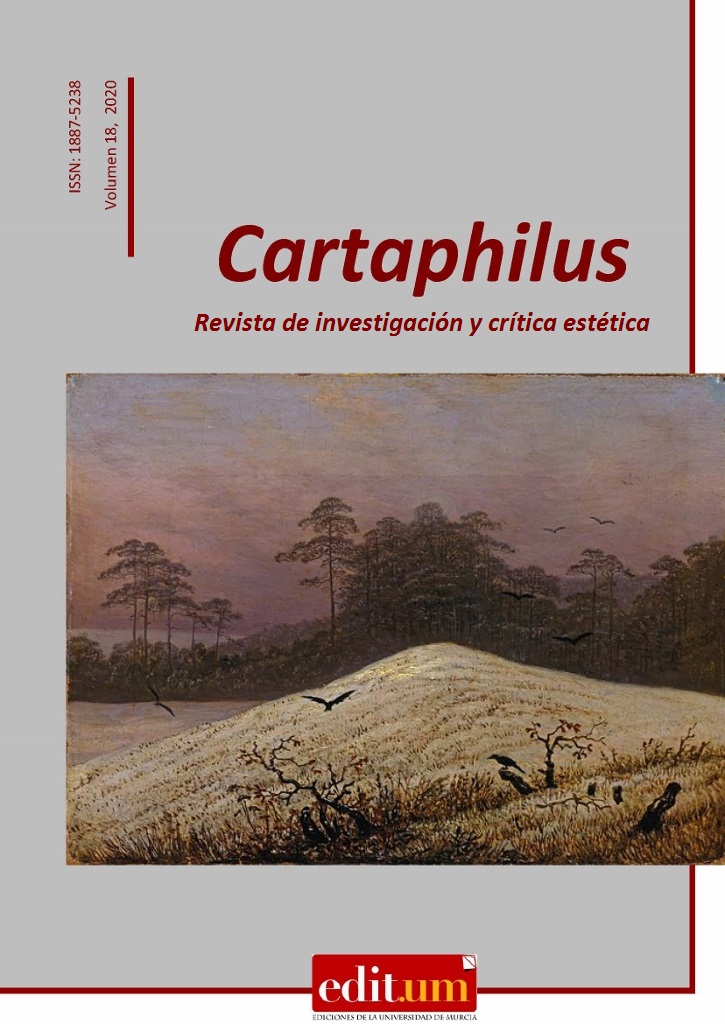El giro trascendentalista de la nueva literatura estadounidense post-moderna
Resumen
Este artículo responde al debate que se produce en el campo de la teoría literaria en torno a la naturaleza de la novela estadounidense postmoderna. Mientras que algunos autores afirmaron a principios del milenio que la novela estaba muerta, una nueva generación de jóvenes escritores estadounidenses fueron responsables de un nuevo compromiso con el género por parte del público. Con esto en mente, este estudio busca arrojar luz sobre la naturaleza de la literatura escrita por estos novelistas que buscan distanciarse del callejón sin salida del posmodernismo. Nuestra premisa es que durante la crisis de principios del siglo veinte, que provoca un replanteamiento del concepto de posmodernidad, los jóvenes autores estadounidenses volvieron su mirada hacia las ideas del trascendentalismo estadounidense como una herramienta para recuperar el proyecto inacabado de la modernidad interrumpido por el postmodernismo.
Descargas
-
Resumen563
-
pdf 577
Citas
AUSTER, P. (2007). Travels in the Scriptorium. London: Faber & Faber.
BAUMAN, Z. (2000). Liquid Modernity. Cambridge: Polity Press.
BERLIN, I. (2013). The Roots of Romanticism. New Jersey: Princeton University Press.
BIRKERTS, S. (2006). The Gutenberg Elegies: The Fate of Reading in an Electronic Age. New York: Faber & Faber.
BLOOM, H. (2004). Where Shall Wisdom Be Found? New York: Riverhead.
BOXALL, P. (2013). Twenty-First-Century Fiction: A Critical Introduction. Cambridge: Cambridge University Press.
CONRAD, P. (2014). How The World Was Won: The Americanization of Everywhere. London & New York: Thames & Hudson.
EAGLETON, T. (2004). After Theory. London: Penguin.
FRANZEN, J. (2003). How to Be Alone: Essays. New York: Picador.
GREEN, J. (2005). Late Postmodernism: American Fiction at the Millennium. New York: Palgrave Macmillan.
JOYCE, J. (1977). Ulysses. London: Penguin.
LAFFOLEY, P. (2001). Homage to Gaudi. Official Paul Laffoley Website. Retrieved March 18, 2020, from https://paullaffoley.net/writings-2/homage-to-gaudi/.
LIPOVETSKY, G. (2005). Hypermodern Times. (A. Brown, Trans.). Cambridge: Polity.
LYOTARD, J. F. (1984). The Postmodern Condition: A Report on Knowledge. (G. Bennington & B. Massumi, Trans.). Manchester: Manchester University Press.
NEGROPONTE, N. (1995). Being Digital. Vintage.
TIMMER, N. (2010). Do You Feel It Too?: The Post-Postmodern Syndrome in American Fiction at the Turn of the Millennium. Amsterdam & New York: Rodopi.
TURNER, T. (1996). City as Landscape: A Post-Postmodern View of Design and Planning. London: Taylor & Francis.
VARVOGLI, A. (2012). Travel and Dislocation in Contemporary American Fiction. New York: Routledge.
VERMEULEN, T. & van den Akker, R. (2010). Notes on Metamodernism. Journal of Aesthetics & Culture, 2(0). doi: 10.3402/jac.v2i0.5677.
VILA-MATAS, E. (2010) Dublinesca. Barcelona: Seix Barral.
WHEALE, N. (1995). The Postmodern Arts: An Introductory Reader. London: Routledge.
WHEELER, W. (2002). Graham Swift. In H. Bertens & J. Natoli (Eds.), Postmodernism: The Key Figures (297-301). Malden: Wiley Blackwell.
WOLFE, T. (1989). Stalking the Billion-Footed Beast. Harper’s Magazine 279, 45-56.
Derechos de autor 2021 Cartaphilus. Revista de investigación y crítica estética

Esta obra está bajo una licencia internacional Creative Commons Atribución-NoComercial-SinDerivadas 4.0.
Las obras que se publican en esta revista están sujetas a los siguientes términos:
1. El Servicio de Publicaciones de la Universidad de Murcia (la editorial) conserva los derechos patrimoniales (copyright) de las obras publicadas, y favorece y permite la reutilización de las mismas bajo la licencia de uso indicada en el punto 2.
2. Las obras se publican en la edición electrónica de la revista bajo una licencia Creative Commons Reconocimiento-NoComercial-SinObraDerivada 3.0 España (texto legal). Se pueden copiar, usar, difundir, transmitir y exponer públicamente, siempre que: i) se cite la autoría y la fuente original de su publicación (revista, editorial y URL de la obra); ii) no se usen para fines comerciales; iii) se mencione la existencia y especificaciones de esta licencia de uso.

3. Condiciones de auto-archivo. Se permite y se anima a los autores a difundir electrónicamente las versiones pre-print (versión antes de ser evaluada) y/o post-print (versión evaluada y aceptada para su publicación) de sus obras antes de su publicación, ya que favorece su circulación y difusión más temprana y con ello un posible aumento en su citación y alcance entre la comunidad académica. Color RoMEO: verde.




